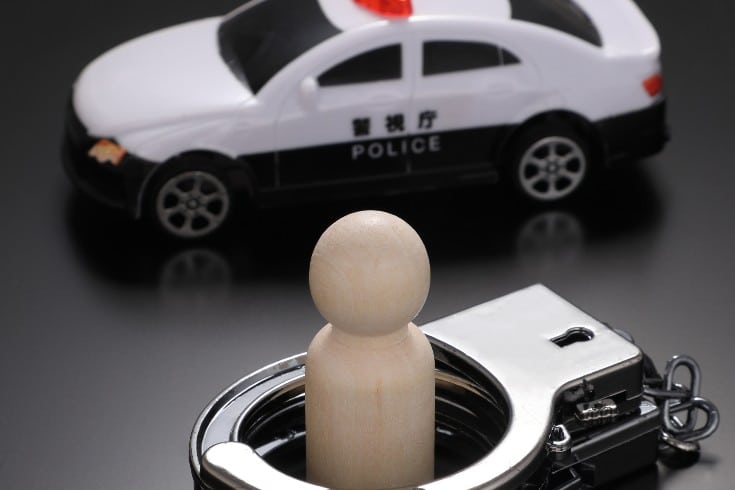Explaining Precedents, Standards, Methods, and Procedures for Deleting Online Articles Related to Arrest Records and Criminal History

If you have a history of arrest or criminal record, it may be reposted on blogs, social media, 2channel, news summary sites, and online bulletin boards. Once information is posted on the internet, it can spread uncontrollably.
Even if it was a minor offense, depending on the content, it may attract significant attention and become the subject of ridicule, or the information may spread more than you anticipated.
As a result, a large number of people may become aware of your arrest history or criminal record, potentially causing significant disadvantage. This disadvantage may not only affect you, but also those around you.
Considering these factors, if your arrest history or criminal record has been spread on the internet, it is important to take action towards deletion as quickly as possible.
However, not all disseminated arrest records or criminal records can be deleted.
So, under what circumstances and by what standards is the deletion of arrest records or criminal records permitted?
In this article, we will explain in detail the disadvantages of having your arrest history or criminal record spread on the internet, under what circumstances your arrest history or criminal record can be deleted based on precedents, and what actions you should take.
Difference Between Arrest Records and Criminal Records

First, let’s understand the difference between arrest records and criminal records.
What is an Arrest Record?
An arrest record refers to the history of being arrested by the police for an incident.
Even if you are arrested, you may not be prosecuted. If you are not prosecuted, you will not be found guilty, and therefore, you will not have a criminal record. Just because you have an arrest record does not mean you have a criminal record. There are cases of mistaken arrest and false charges.
However, even in these cases, the news is reported just for being arrested, and it may be spread.
What is a Criminal Record?
A criminal record refers to the history of actually undergoing a criminal trial and receiving a penalty.
Having a criminal record means that you have been found guilty, so there is no possibility of mistaken arrest or false charges.
Arrest Records Tend to Attract More Attention Than Criminal Records
In the news, arrest reports are made first, but the subsequent criminal trial usually takes some time.
Therefore, about the criminal record, a considerable period after the arrest report, it will be reported that “the trial of the suspect in the previous incident took place, and a verdict was issued and found guilty”. However, unless it is a very sensational incident, it does not attract much public attention.
Even if it is reported that “he/she was arrested”, there is a possibility of mistaken arrest or false charges, and he/she may be released if a settlement is reached with the other party, or he/she may be released immediately for a minor offense.
Nevertheless, it is a troublesome problem that arrest news is highlighted and spread.
The particular problem is the issue of so-called mistaken arrests. It is unacceptable in any sense that a person is mistakenly arrested without any fault and the arrest article continues to remain on the Internet.
For details on the deletion of arrest records for mistaken arrests, please refer to the article below.
Disadvantages of Having a Record of Arrest or Criminal Convictions

Job Hunting
When applying for a job or changing jobs, if potential employers search your name on the internet and discover your arrest record or criminal convictions, the chances of not being hired are quite high.
Even if the incident for which you were arrested is not well-known, if it is posted on a website, it will appear in a search of your real name. Nowadays, some companies seem to require a real-name search before hiring.
Workplace
If it becomes known within your company that you have a criminal record or have been arrested, you may face disadvantages at work. You could be fired or demoted because of your criminal record or arrest history.
Also, if your criminal record or arrest history becomes known and you decide to change jobs, the reasons mentioned above may make it difficult to do so.
Dating and Marriage
Not many people would willingly want to marry someone with a record of arrest or criminal convictions. Even if they love the person, they may decide against marriage considering factors such as potential future children.
Even if your partner is willing to marry you, you may face opposition from their parents or family.
Family
If you have a record of arrest or criminal convictions, it can also disadvantage others besides yourself. Being related to a criminal can lead to rumors in the neighborhood or community, potentially causing discomfort for your family.
If you have children, their friends or families finding out about your arrest record or criminal convictions could potentially lead to bullying. Even if you move, if reports of your criminal history remain on the internet, there is still a chance that this information could become known to those around you.
Rental Housing Application Screening
When renting a house, there is a screening process. If your arrest record or criminal convictions are discovered during a real-name search on the internet at this time, you may not pass the screening. If you don’t pass the screening, you won’t be able to rent a house, which can disrupt your daily life.
Considering the potential for various disadvantages, it is desirable to remove articles related to past arrest records and criminal convictions as quickly as possible.
How Long Do Arrest Records and Criminal History Remain?

Major newspaper news sites, for example, automatically delete articles after a certain period, such as six months or a year. This is because it is problematic for very old articles to easily appear in web searches.
However, even after the ‘primary information’ such as news articles from newspapers and other sources have disappeared, the copied news on internet bulletin boards, personal blogs, and social media remain on the internet. If nothing is done, they will remain indefinitely.
Is it Possible to Remove Arrest and Criminal Records from the Internet?
According to precedent, individuals with arrest or criminal records are recognized to have the right to ‘unhindered rehabilitation’, which can be compromised by the public disclosure of these records.
The right to not have one’s arrest or criminal records disclosed is protected as a form of privacy. Therefore, it is possible to remove publicly disclosed arrest and criminal records.
After a person has received a guilty verdict or completed their sentence, it is expected that they will return to society as a citizen. Therefore, it should be said that they have the right to unhindered rehabilitation, which can be compromised by the public disclosure of facts related to their criminal record.
Supreme Court, February 8, 1994 (Heisei 6) (‘Reversal’ case)
On the other hand, posting to news articles and the like is an act based on freedom of expression, so it is not always permissible to delete articles.
In other words, it is necessary to judge whether to prioritize freedom of expression or the right to privacy. Deletion requests are only accepted if it can be judged that the right to privacy is being excessively infringed upon.
So, under what circumstances can arrest and criminal records be deleted? Below, we will explain based on the standards of precedent.
For general privacy infringements, not limited to arrest and criminal records, we provide a detailed explanation in the following article.
Precedents Regarding the Deletion of Arrest and Criminal Records

The precedent has indicated the following criteria for when the publication of arrest and criminal records constitutes an invasion of privacy:
Regarding facts related to criminal records, there are cases where the interest in not having them disclosed is worthy of legal protection, but there are also cases where their disclosure should be permitted. Whether the publication of facts related to someone’s criminal record using their real name in a work constitutes a tort depends not only on the person’s subsequent living conditions, but also on the historical or social significance of the case itself, the importance of the parties involved, the person’s social activities and their influence, and the significance and necessity of using the real name in light of the purpose and nature of the work. As a result, if it is determined that the legal interest in not disclosing facts related to criminal records is superior, it must be said that one can seek compensation for mental distress caused by the disclosure.
Supreme Court, February 8, 1994 (Heisei 6) Minshu Vol. 48, No. 2, p. 149 [“Reversal” case]
In other words, while there are cases where arrest and criminal records should be protected as privacy, there are also cases where their publication is recognized as having historical or social significance. Therefore, it is necessary to compare and weigh:
- The legal interest in not disclosing arrest and criminal records
- The significance and necessity of disclosing arrest and criminal records
Only when the former is superior to the latter, deletion can be recognized as illegal.
When performing the above comparison and weighing, the following three points are often mentioned as consideration factors in precedents:
- Matters related to the attributes of the subject
- Matters related to the content of the case in question
- Matters related to the purpose and significance of the publication
For example,
- If the person arrested is a politician or corporate executive with social influence, there is some significance in disclosing their arrest and criminal records. However, if they are an ordinary citizen, the significance of disclosure is weak.
- If it is a major incident that will go down in history, there is some significance in disclosing the arrest and criminal records of the person arrested in that incident. However, if it is a minor incident, the significance of disclosure is weak.
- If it is an incident that has already faded from public memory, the significance of disclosure is weak.
Now, let’s look at some actual precedents based on the above criteria.
【Case ①】Deletion of News Articles on Juvenile Cases
A weekly magazine published an article about a heinous crime committed by a group of juveniles. The article used pseudonyms to describe the appearance of the juvenile defendants in court, some details of the crime, and their backgrounds and relationships.
The Supreme Court, citing the standard set in the 1994 (Heisei 6) ruling, made the following judgment:
It is necessary to individually and concretely examine various circumstances related to the legal interest of not disclosing the facts and the reasons for disclosing them, such as the age and social status of the defendant at the time the article was published in the weekly magazine, the content of the crime, the extent to which information belonging to the defendant’s privacy is conveyed by being disclosed, the degree of specific damage suffered by the defendant, the purpose and significance of the article, the social situation at the time of publication, and the necessity of disclosing the information in the article, and to compare and weigh these factors.
Supreme Court ruling on March 14, 2003 (Heisei 15), Minshu Vol. 57, No. 3, p. 229 [Nagaragawa Incident Reporting Lawsuit]
In addition, the Supreme Court, focusing on the attribute of the defendant being a “juvenile” in relation to Article 61 of the Japanese Juvenile Law, which prohibits the predictive reporting of juvenile cases, also made the following judgment:
Assuming that the article in question violates Article 61 of the Juvenile Law, it should be interpreted that illegality is only denied when there are special circumstances in which the demand to defend the social interest clearly takes precedence over the rights or legal interests of juveniles that should be protected by the said article.
ibid
In other words, this judgment emphasized the attribute of the defendant being a “juvenile”, and stated that the disclosure of criminal records, etc. is not allowed in principle, and in order for the significance and necessity of disclosure to outweigh the legal interest of not being disclosed, there must be “special circumstances in which the former should clearly take precedence”.
The Supreme Court, from this perspective, found that there was an unjust trial in the original trial, and remanded the case. In the retrial, the following judgment was made:
Considering the reasons for publishing the article, such as the fact that the range of privacy information about the defendant that can be inferred from the article is limited and the specific damage suffered by the defendant due to its transmission is relatively small, the content of the crime is extremely heinous and brutal, the article mainly describes the feelings of the parents of the victims of juvenile crime, the social situation at the time of publication of the article was that the public’s interest in juvenile crime was increasing, and the article is a legitimate concern of the public and its purpose and significance are rational, and the necessity of publication can be recognized, it is appropriate to interpret that the legal interest of not publishing the article about the defendant is recognized, but the former is superior to the latter.
Nagoya High Court ruling on May 12, 2004 (Heisei 16)
In other words, in this case, even focusing on the attribute of the defendant being a “juvenile”, it was decided that the significance and necessity of disclosing criminal records, etc. outweigh the legal interest of not disclosing them, considering mainly the following elements:
- The range of identifying the defendant is narrow, and the specific damage to the defendant is small.
- The content of the crime is heinous.
- Social interest in juvenile cases is high, and the article, which describes the feelings of the victims, has a legitimate significance.
【Case Study ②】Removal of Search Results Related to Arrest History
A man who was fined 500,000 yen for violating the Japanese Act on Punishment of Activities Relating to Child Prostitution and Child Pornography sought the removal of information about his arrest from Google’s search results. Despite more than three years having passed since the incident, articles from the time of his arrest were still appearing in search results when his name was searched.
In this case, the Saitama District Court, in the first instance, approved the removal of the search results based on the “right to be forgotten”. However, the Tokyo High Court overturned this decision, and the Supreme Court also did not approve the removal of the search results, as indicated below.
Whether the act of a search engine operator providing URLs and other information of websites containing articles, etc., that include facts belonging to an individual’s privacy as part of search results in response to a search request about a certain individual is illegal or not, should be judged by comparing and weighing various circumstances related to the nature and content of the facts, the extent to which facts belonging to the individual’s privacy are conveyed by providing the URLs and other information, the degree of specific harm suffered by the individual, the individual’s social status and influence, the purpose and significance of the articles, etc., the social situation at the time the articles, etc., were posted and subsequent changes, the necessity of describing the facts in the articles, etc., the legal interest of not having the facts disclosed, and the reasons for providing the URLs and other information as search results. If it is clear that the legal interest of not having the facts disclosed is superior, it is reasonable to interpret that the individual can demand the search engine operator to remove the URLs and other information from the search results.
Supreme Court decision, January 31, 2017 (Heisei 29) Minshu Vol. 71 No. 1 p. 63
As stated above, this judgment, while following the standard set by the Supreme Court decision in 1994 (Heisei 6), did not approve the removal of search results after considering the following factors:
- Child prostitution is strongly condemned by society and is still a matter of public interest.
- The conditions under which search results are displayed are limited, and the range in which the facts of this case are conveyed is limited.
This judgment, while essentially following the standard of previous case law, is significant in that it recognizes that the provision of search results by search engine operators such as Google is an act of expression by the operators, and that there may be cases where search results can be deleted entirely.
Normally, each article must be requested for deletion individually. However, if the articles do not appear in search results in the first place, it is virtually impossible to view each article, leading to a fundamental solution (hence, the relationship with the people’s “freedom to know” becomes an issue, but this point awaits future case law and discussion).
In 2022 (Reiwa 4), a new court decision was made regarding the deletion of tweets on Twitter, and the deletion was approved. This is explained in detail in this article.
Related article: Has it become easier to delete arrest articles and criminal record information due to the Supreme Court decision in 2022 (Reiwa 4)?
Criteria for Deleting Arrest and Criminal Records
Based on the framework of the aforementioned precedents, we can further break down the factors to consider. The following elements can be deemed important.
Whether Prosecution Occurred
Whether prosecution occurred is crucial. If there was no prosecution, it means that the individual did not undergo a criminal trial and was not found guilty. There may also be cases of false accusations. In such instances, deletion is relatively easy.
Time Elapsed Since the Crime
As time passes from the incident, its impact on society diminishes, and the necessity for reporting the real name becomes less significant. The longer the time elapsed, the more likely a deletion request will be accepted. However, this varies depending on the nature and severity of the original incident.
It’s difficult to determine how old an article needs to be for it to be deleted, but the statute of limitations for prosecution can serve as a certain standard. For example, the statute of limitations for violations of the nuisance prevention ordinance is three years. If the article is five years old, there is a high likelihood that deletion will be granted.
This “time period” factor is likely the most significant for those seeking deletion. We discuss this point in detail in the following article.
Efforts Towards Rehabilitation
If the individual has already reintegrated into society or if the probation period has ended, the interest in rehabilitation should be prioritized, making deletion more likely.
Also, if there are victims and a settlement has been reached with compensation paid, the benefits of rehabilitation are more likely to be recognized.
Procedure for Deleting Arrest Records and Criminal History
As mentioned above, the decision to delete arrest records and criminal history is made comprehensively, taking into account factors such as the time elapsed since the incident and efforts towards rehabilitation. However, it is difficult for individuals to carry out such deletion requests on their own.
Therefore, it is necessary to consult and request the assistance of a lawyer. It is important to note that if a third party other than the person in question or their lawyer carries out the deletion process, it constitutes unauthorized practice of law. Be cautious of deletion proxy service providers.
If you request a lawyer to handle the procedure, they will make a request to the administrators of newspaper websites, blogs, bulletin boards, etc. to delete articles. If there is a valid reason, they will usually comply with voluntary deletion requests.
In the case of 5channel (formerly 2channel)
In the case of 5channel, deletion requests are made by email. If the criteria are met, they are supposed to delete the content upon request by email, but in reality, it is rare for content to be smoothly deleted via email.
For 2channel, there is a method of making a deletion request to the administrator using the “Deletion Request Thread”, but if you use the Deletion Request Thread, the content will be “public”.
Because the Deletion Request Thread is public, the fact that you are applying for deletion becomes widely known to third parties, which could attract public attention and potentially exacerbate the damage.
Moreover, deletions are rarely approved. In the case of bankruptcy information, this method should be particularly avoided.
If they do not comply with voluntary deletion requests, it is possible to obtain a deletion order from the court by using provisional disposition procedures, etc.
In the case of Twitter
First, save the target tweet using the screenshot function on your mobile phone or computer. It is even better if the post date and time are included in the image to enhance its credibility.
Next, try contacting the account owner who posted the problematic tweet using the direct message function. It is effective to mention that you have contacted Twitter’s headquarters and informed your lawyer.
However, it is unlikely that the account owner will easily comply with the deletion request. Therefore, you should also directly request Twitter to delete the target tweet. To request deletion, select the relevant violation report from the item to contact support in the settings.
Please select “Harassment” for defamation, etc. You can apply for deletion by selecting the content to report, entering the account name of the person who made the problematic tweet, the URL of the tweet, the content of the problem, and the requester’s address, account name, and real name.
In the case of search sites (such as Yahoo! and Google)
There are two major types of problems with arrest records and criminal history on search engines like Google and Yahoo!.
First, search engines like Google and Yahoo! have features such as suggestions that are displayed as aids to search words when you enter keywords, and related words and magnifying glasses that are displayed at the bottom of the search results page.
If a string of personalitys like “arrest” appears in the suggestions when you try to search for your own name, it makes it easier for words like “real name arrest” to be searched. In the first place, the fact that such words are displayed gives the impression that the person seems to have some kind of criminal record.
Google and Yahoo! have dedicated forms for deleting suggestions and related keywords, where you can fill in the necessary information and apply for deletion. It is said that it takes up to a month from application to deletion, but if it takes longer, you should consult a lawyer and have them delete it for you.
Also, there is a problem where a page related to the arrest record or criminal history of yourself or the company’s representative director is displayed on the search results screen when you search for your name or company name on Google or Yahoo!.
If you can delete the page itself that is the search result, that’s fine, but if you can’t delete the page itself, you will consider a procedure called search result exclusion application to exclude that page from the search results.
The details of this procedure are explained in the following article.
Cost of Removing Arrest Records and Criminal History Information Online
So, how much does it cost to hire a lawyer to request the removal of arrest records and criminal history information?
Of course, the cost varies depending on the law firm you hire, the nature of your request, and which site you’re asking to remove information from. The following are the average costs assuming a relatively easy removal request, such as for defamation or slander.
・Delegation of removal request
Retainer fee: 50,000 to 100,000 yen Reward money: 50,000 to 100,000 yen
・Filing for removal through provisional disposition
Retainer fee: Approximately 200,000 yen Reward money: Approximately 150,000 yen
As mentioned above, the cost varies depending on the nature of your request, so please consult and confirm thoroughly with the lawyer you are hiring.
Conclusion: Seek a Lawyer’s Assistance for the Removal of Online Arrest and Criminal Records

The reputation of having an arrest or criminal record can turn your life into an unstable one, posing a serious problem. This reputation can potentially have a negative impact not only on you but also on those close to you, such as family and friends.
However, this is by no means an unsolvable issue.
If you find it difficult to resolve on your own, we recommend consulting with a professional lawyer at an early stage. Prompt action is necessary to protect both you and your loved ones.
Our Firm’s Approach
Monolith Law Office is a law firm with high expertise in both IT, particularly the internet, and law. In recent years, information related to reputational damage and defamation spread on the internet has been causing serious harm as a “digital tattoo”. Our firm provides solutions to tackle these “digital tattoos”. Please refer to the article below for more details.
Category: Internet





















